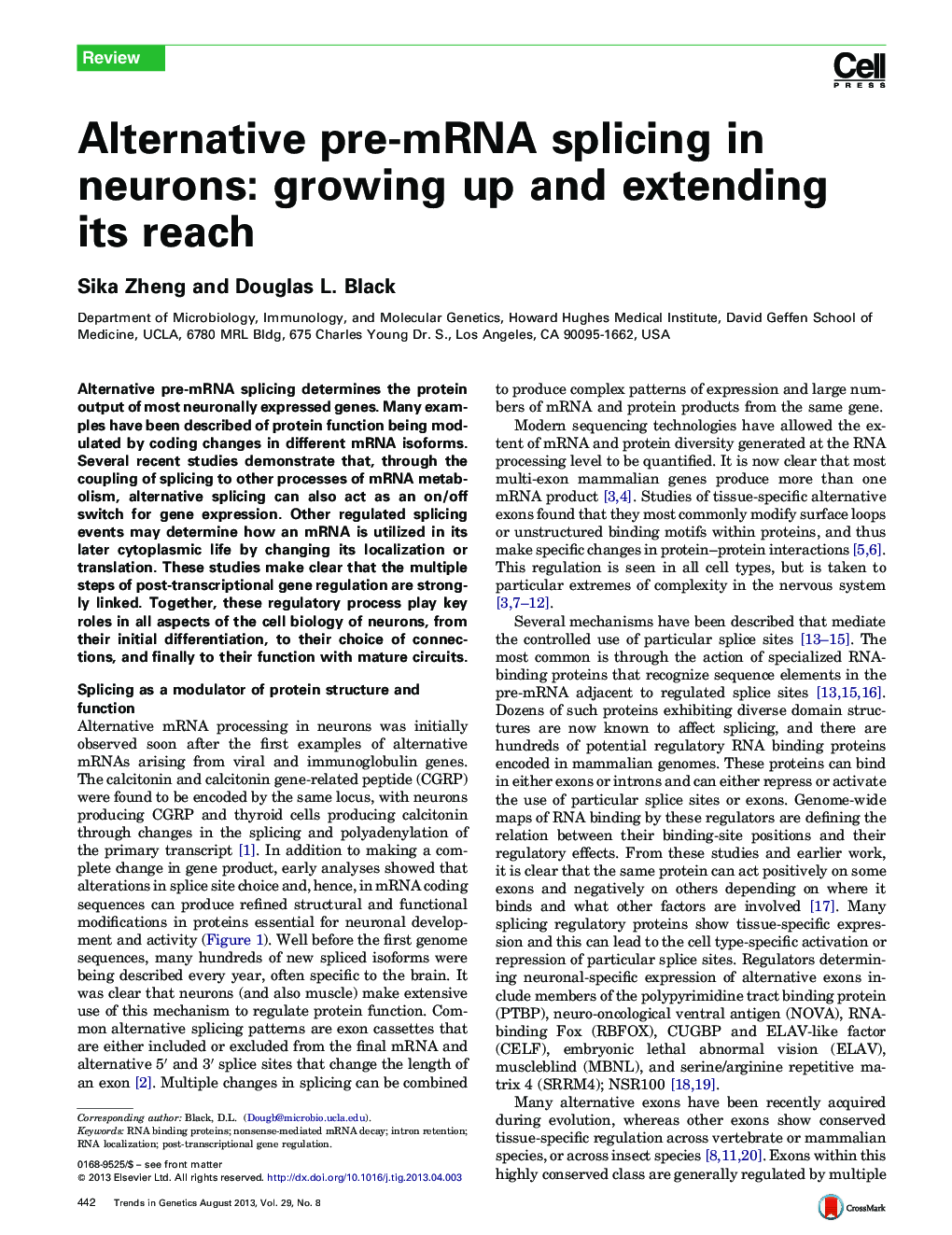| Article ID | Journal | Published Year | Pages | File Type |
|---|---|---|---|---|
| 2824929 | Trends in Genetics | 2013 | 7 Pages |
•Alternative splicing coupled to mRNA decay can control gene expression.•Choice of splicing pattern can also determine later mRNA utilization.•These aspects of splicing regulation profoundly affect neuronal cell biology.
Alternative pre-mRNA splicing determines the protein output of most neuronally expressed genes. Many examples have been described of protein function being modulated by coding changes in different mRNA isoforms. Several recent studies demonstrate that, through the coupling of splicing to other processes of mRNA metabolism, alternative splicing can also act as an on/off switch for gene expression. Other regulated splicing events may determine how an mRNA is utilized in its later cytoplasmic life by changing its localization or translation. These studies make clear that the multiple steps of post-transcriptional gene regulation are strongly linked. Together, these regulatory process play key roles in all aspects of the cell biology of neurons, from their initial differentiation, to their choice of connections, and finally to their function with mature circuits.
